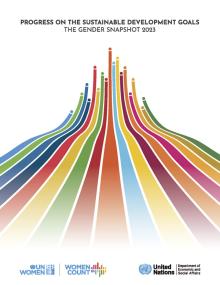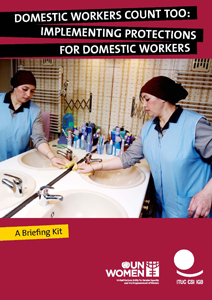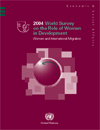This report presents the latest evidence on gender equality across all 17 Sustainable Development Goals, focusing not only on the current level of progress, but also on the likelihood of achieving gender equality across the Goals at the current trajectory. Among this year’s recommendations is a call to significantly expand national investments and international financing in support of gender equality.
Explore our publications and reports
Women and Natural Resources in Peacebuilding: Strengthening participation, improving protection and…
As primary managers and users of natural resources in many conflict-affected contexts, women have a key role to play in peacebuilding but are often excluded from…
This Briefing Kit “Domestic Workers Count Too: Implementing Protection for Domestic Workers,” is informed by the experience of struggle, resilience and creative practice…
The biennial MDGs Gender Chart depicts the situation of women and girls in developing regions as reflected in a number of indicators that are used to monitor the MDGs.
The Handbook serves as a useful tool in supporting efforts to provide justice, support, protection and remedies to victims and to hold perpetrators accountable.
Domestic workers are an integral part of the global labour force.
This publication provides findings from the recent evaluation of the “Dalit Women's Livelihood Accountability Initiative supported by the UN Women's Fund for Gender…
Empowering women to participate fully in economic life across all sectors is essential to build stronger economies, achieve internationally agreed goals for development…
Empowering women in informal cross border trading has a positive multiplier effect on poverty reduction, economic growth, government revenues and employment creation,…
Initiated in 2004 in partnership with the United Nations Development Programme (UNDP), Sabaya was UNIFEM's (now UN Women's) largest programme in the occupied Palestinian…
A gender perspective is essential to understanding both the causes and consequences of international migration. Female migrants are increasingly part of worker flows,…
















